Steps of the grant management process
- Research grants and funding opportunities
- Organize funding information and supporting documents
- Invest in software to track grant applications
- Submit applications to grantors
- Use the funding received as outlined in the application
- Track and evaluate the success of the project
- Submit financial and programmatic reports to funders
- Follow up with funders and continue to build relationships
Effective grant management is essential to a nonprofit’s fundraising success. But budgeting, tracking, reporting, and managing grants often turns into an overwhelming administrative project that takes valuable staff time and resources away from the more important work at the heart of your organization.
So it stands to reason that streamlining and improving your grant management process means your organization could spend less time seeking out grants and filling out applications and more time on mission-driven, higher-value activities.
This article will give you an overview of the grant management process, key stakeholders involved in that process, the different types of grants, and the grant management life cycle, so you can decrease the time and effort your organization spends on grant management and reduce cumbersome administrative tasks.
That means you’ll have more time to focus on the important work of implementing your organization’s mission.
An overview of grant management
Grant management is the process by which nonprofits oversee all the funding proposals they submit to grantmaking organizations. It includes organizing, prioritizing, and finalizing applications and confirming that the nonprofit satisfies the requirements of funding. Tasks involved in the process include documentation, financial tracking, and project management.
Grant management stakeholders
There are several stakeholders involved in grant management:
- Grantor: This is the entity that provides funding that sustains and supports organizations. Examples of grantors include public and private organizations, community foundations, and government organizations.
- Grantee: This is the recipient of the funding.
- Grant manager: A grant manager is a person who plans and implements grant programs. This includes creating budgets, researching funding possibilities, overseeing staff, monitoring results, and analyzing financial data, among other activities.
- Review committee: This committee is responsible for reviewing grant proposals and making award decisions.
- Beneficiaries: These are the organizations or individuals who receive grants.
- Partners: Grant partners are the individuals, groups, or organizations that support and implement grant programs.
- Community representative: This is the person who represents the granting organization in the community.
- Consultant: A consultant is someone who researches and analyzes grant opportunities and makes recommendations to organizations to help them find, apply for, and receive funding.
Types of nonprofit grants based on funding source
Unlike conditional grants, in which grant recipients must use funds for a specified purpose and which aren’t dispersed until the grantee meets certain conditions, an unconditional grant provides funds up front and without restrictions.
A contingent grant provides funding in installments as your nonprofit meets specified conditions and benchmarks the funding organization has defined.
A reimbursable grant provides funding after your organization incurs program expenses. Your nonprofit must submit proof of these expenses to receive reimbursement.
Types of nonprofit grants based on purpose
There are several types of nonprofit funding available based on purpose:
- Project grants are awarded to fund specific programs or projects that have clearly delineated objectives.
- Operating grants support the operating expenses of the organization. Most funders that award operating grants prefer to support established, sustainable nonprofits, making these grants challenging to secure.
- Research grants fund research expenses and are awarded to colleges, universities, and nonprofits that conduct research.
- Education grants are awarded to nonprofits with a mission of educating the public on a specific topic, such as environmental education.
- Government grants are awarded to organizations that work with government-funded programs and projects, such as universities, research labs, nonprofit organizations, and state and local governments.
- Humanitarian grants are awarded by humanitarian aid programs to fund projects that focus on activities such as providing disaster relief, emergency shelter, access to clean drinking water, and healthcare training; responding to health-related crises; alleviating hunger and poverty; and so on.
The grant management life cycle
The three major stages of the grant management life cycle are pre-award, award, and post-award.
The pre-award phase involves researching and identifying grant opportunities, building relationships with funders, and applying for grants.
During the award phase, funders choose grantees. The funding organization will notify you if your organization is chosen. You’ll then receive an agreement outlining the grant terms and conditions. Once your organization submits this paperwork to the grantor, they will disperse the funds.
In the post-award phase, it’s time to implement the funding according to the purpose outlined in your grant application. This is when you need to track expenses, keep careful records, complete necessary benchmarks, and report on progress as required by the grantor.
The grant management process
The grant management process is made up of several key steps in the pre-award, award, and post-award phases.
Planning (pre-award)
Research grants and funding opportunities
Though it might seem like a good idea to apply for every grant and funding opportunity available, it’s actually better to seek out grants that specifically match your organization’s mission and goals and fit your nonprofit’s overarching strategy.
Grant funding can come from a variety of sources, all of which you should research thoroughly, such as federal, local, or state governments; family foundations; public charities; community foundations; and private foundations. When searching for grant opportunities in these areas, be sure to pay attention to grant cycles and giving histories.
Because organizations often award grant funding for very specific purposes, you have to determine the exact projects and efforts the grant will fund before applying. Once you’ve determined your organization’s highest-priority needs, you can streamline the research process by focusing only on funding that meets those specific needs.
Application (pre-award)
Organize funding information and supporting documents
One of the best things you can do to improve your nonprofit’s grant management is to organize and maintain good records year round.
If you currently have information stored in emails, hard copy file folders, computer files, random spreadsheets, and other far-flung places, now would be a great time to organize all the key information and supporting documents you need to apply for grants in one handy location.
This includes funder requirements, funder contact information, requested amounts, tax details, and answers to common questions, along with invoices, receipts, and other financial documents. Organizing all this information will save you heaps of time during the grant application process.
Invest in software to track grant applications
Keeping your grant information organized and sorted with a grant tracking solution will ensure you meet important grants-related deadlines and submit reports on time. As an added bonus, by managing your grants more effectively, you’ll free up time that will allow you to apply for additional grants and secure more funding to implement your organization’s mission — it’s a win-win.
Jotform’s grant tracking spreadsheet allows you to monitor the status of ongoing grant applications, manage contact details, and organize information to apply for grants. The spreadsheet is completely customizable, and it offers a calculation feature that automatically adds up totals for grant amounts you’ve requested and received.
For grant budgeting purposes, our grant budget template allows you to easily collect, store, and manage your grant data in a hybrid spreadsheet-database tool.
And our grant approval process template comes in handy for tracking the process of submitted requests.
Review and award
At this stage, the granting organization reviews and evaluates grant applications based on the organization’s funding objectives. The organization selects applications that meet the requirements and notifies grant recipients of the award. If your organization is selected, you’ll receive an agreement that stipulates grant terms and conditions.
Execution (post-award)
At this point, your organization will implement the funding as outlined in your grant proposal.
Evaluation (post-award)
During this part of the process, your organization will audit, track, and report on benchmarks as required by the grantor, which may include both financial and programmatic reporting. There may also be some oversight involved, with grantor agency representatives performing onsite visits.
Even if your grantor doesn’t require reports and updates, it’s still a good idea to create them for internal use to track progress toward goals and evaluate next steps.
Closeout (post-award)
The closeout period is the last step of the grant process. This is when you’ll submit the final financial and programmatic reports to the funding organization.
Follow-up and relationship building (post-award)
While accurate tracking and reporting is key to effectively managing grants internally, it’s also imperative for communicating with funders and grant makers outside your nonprofit. Regular and transparent communication between funders and grantees is the key to a mutually beneficial relationship, and sharing the right information at the right time will instill confidence and trust in your organization.
The grant management process doesn’t have to be an unwieldy and time-consuming administrative task that makes you want to quit your job and run off to Bora Bora.
With handy, updated tracking and reporting tools like Jotform’s grant tracking spreadsheet, you’ll be able to organize and stay on top of key grant information with ease.
Jotform can also help organizations collect grant applicant information with templates like our simple grant application or multipage grant application. You can then track and monitor that data using Jotform Tables.
Check out Jotform’s other online tools to make raising money for your organization simple and painless, including our intuitive online fundraising app templates.
And finally, accepting online donations is now easier than ever with Jotform’s new custom apps for online giving. Our powerful, all-in-one donation apps are simple to customize, allowing you to collect payments, customize the design, add your branding, and set your predefined donation amounts — all without coding. There are 35 templates to choose from, so you can find the donation app that’s just right for your organization.
When you prepare ahead of time using the information above, you can seamlessly manage the grant process with minimal stress. And once the grants are rolling in as a result of your new and improved process, you can begin planning your Bora Bora vacation to celebrate your newfound success.





















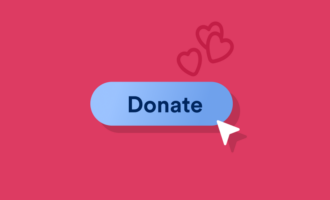
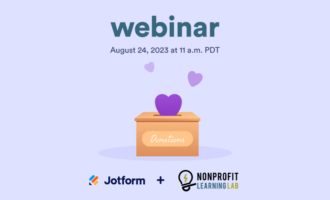



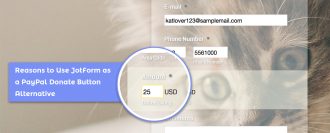
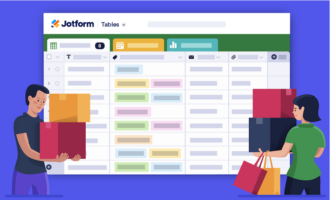







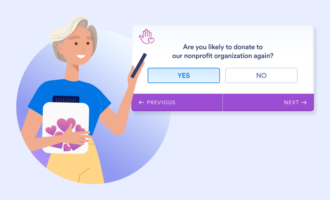





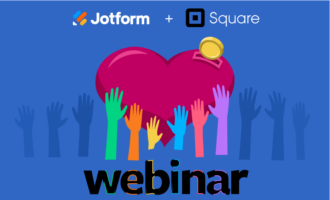




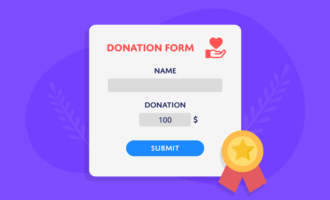

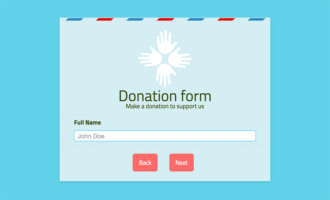



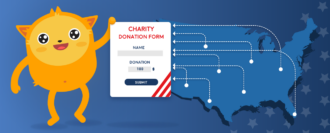


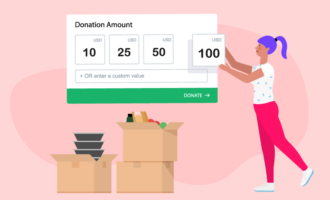


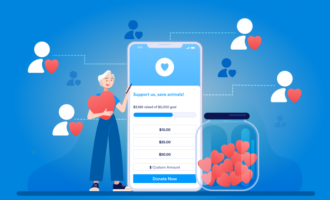

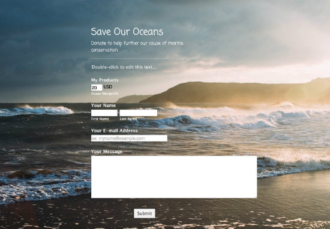
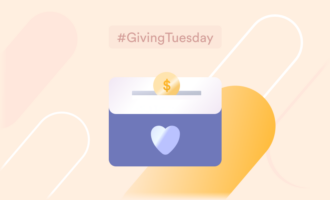






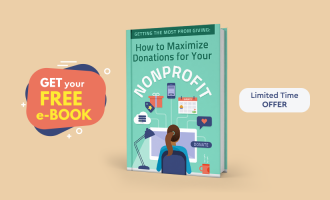

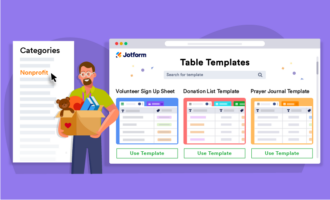

Send Comment: